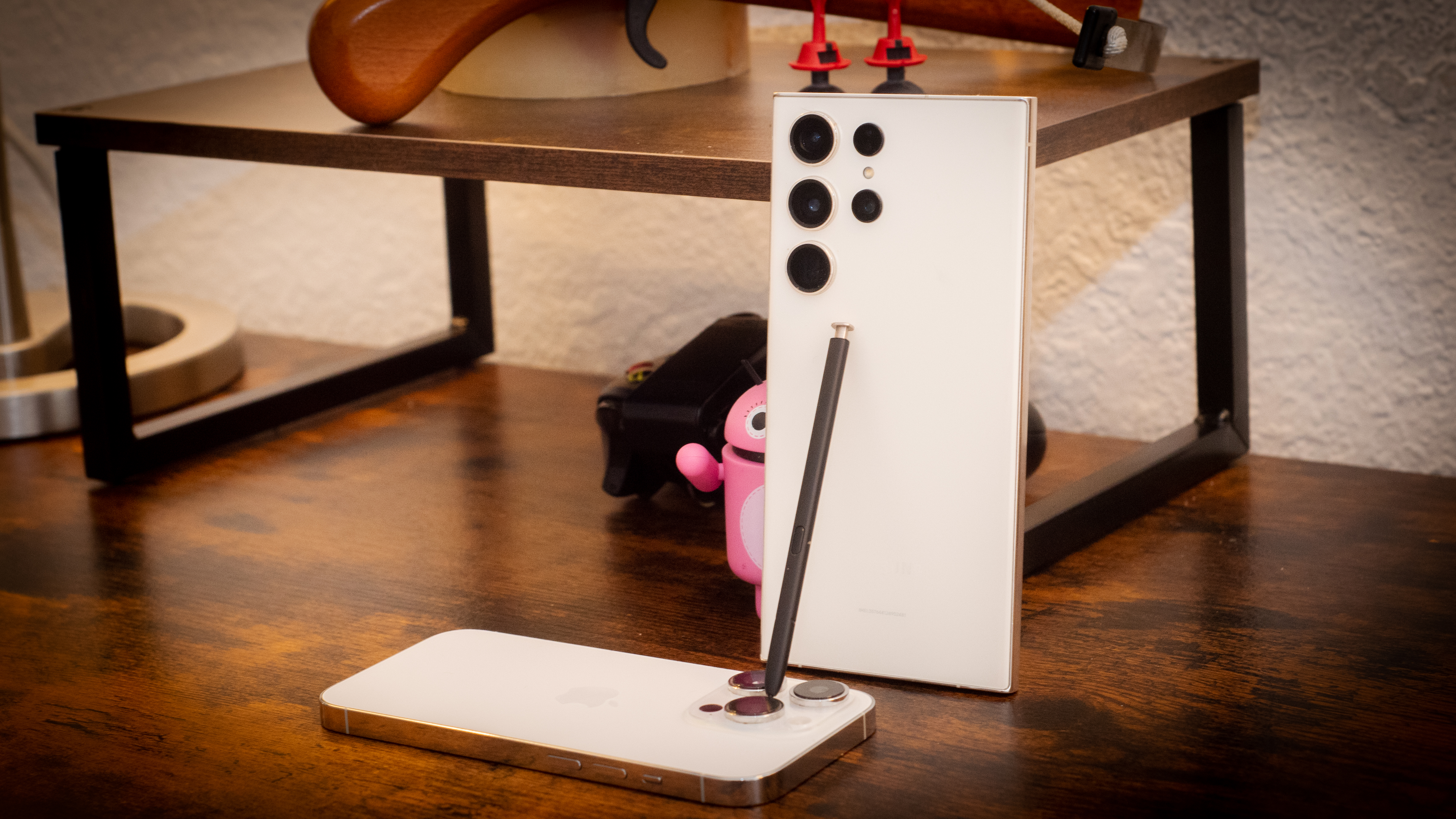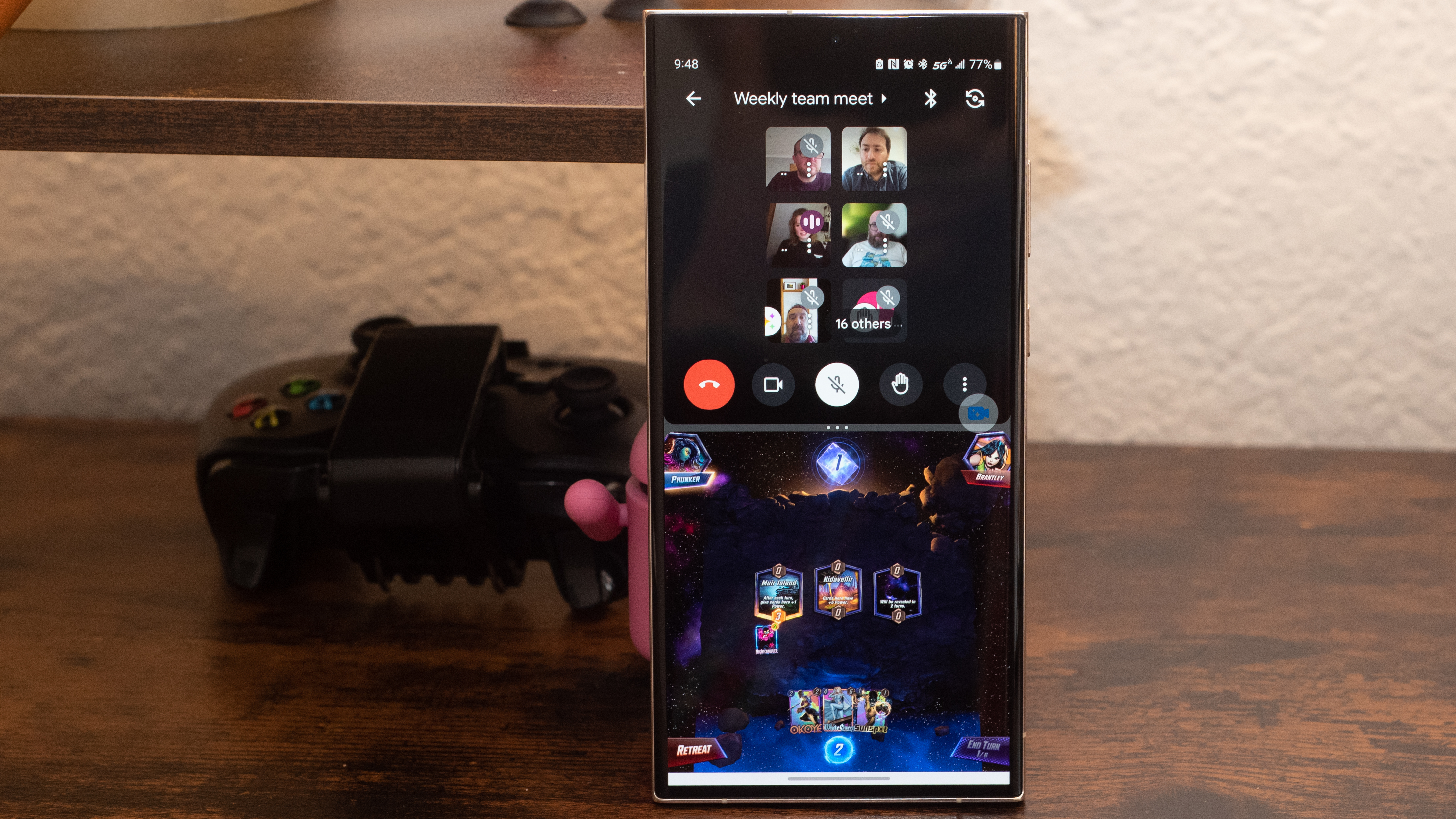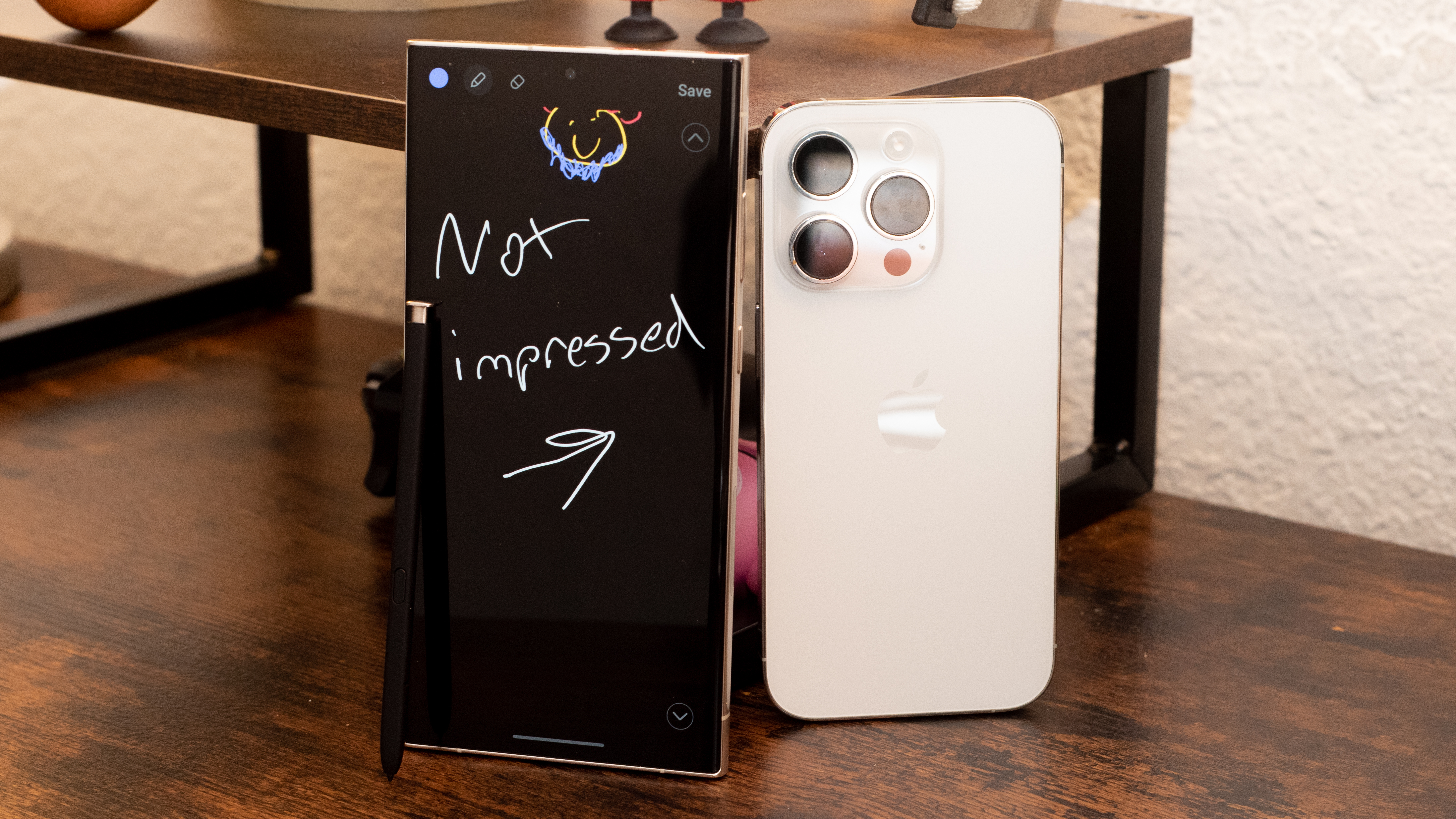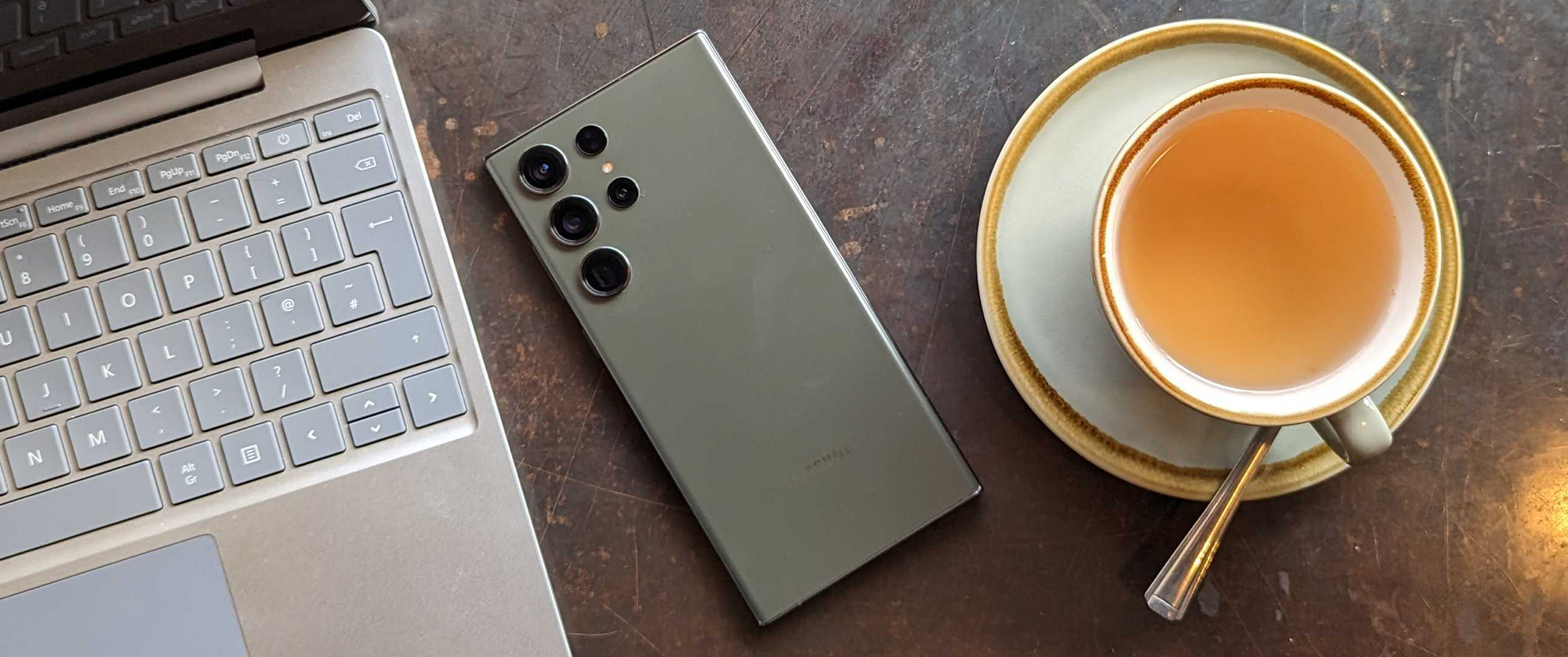The Galaxy S23 Ultra is the phone of tomorrow; that doesn't help you today
Opinion: Do you have a hand free to hold the future?

Sign up for breaking news, reviews, opinion, top tech deals, and more.
You are now subscribed
Your newsletter sign-up was successful
Samsung must be exasperated. What more can it add to the Galaxy S23 Ultra? While its feature-rich flagship lags Apple’s best iPhones in sales, it’s hard to imagine how Samsung could improve. I bought a Galaxy S23 Ultra. It feels like a device from tomorrow has been transported to my hand, when I use it to its full potential. Unfortunately, today demands my full attention, and it’s hard to imagine asking you to make the leap.
a phone for a different moment in time, and that’s the problem
Of course, I mean the leap from iPhone to one of the best Samsung phones. Samsung's piece of the smartphone pie has mostly grown as other Android makers shrink. If you have one of the best iPhones, you’re less likely to switch.
Samsung fans have a hard time comprehending why iPhone users are so against switching. To die-hard fans and expert users, it’s clear how far ahead a Samsung phone can seem. Samsung enthusiasts can type until they are blue in the fingers, but the phone they describe is a phone for a different moment in time, and that’s the problem.
Here are the biggest selling points of the Samsung Galaxy S23 Ultra, and the reasons why it is truly a phone that delivers the future of mobile technology, today. Also, why those reasons don’t matter. It’s 2023, not the distant future, and the world may not be ready for the Galaxy S23 Ultra.
The Galaxy S23 Ultra is like a desktop computer
I can write a detailed list of every major difference and advantage the Galaxy S23 Ultra has over the iPhone 14 Pro, or vice versa. I own both, and I’ve used them both extensively. The truth is, the Galaxy S23 Ultra is a mini-computer and digital toolbox in your hand. The iPhone 14 Pro is simply a focused and refined smartphone.
For technorati like me, it’s hard to imagine a future that isn’t shoved forward by highly-capable handheld tech like Samsung’s Galaxy phones. The iPhone is deeply seated in the past. It can barely handle multi-tasking, let alone running multiple apps simultaneously in paired windows. It is only minimally customizable. It simply doesn’t do very much.

The Galaxy S23 Ultra lets you run multiple apps, side-by-side, just like a computer. It lets you tweak your experience, from the themes and colors of the app icons to the very width of the toolbars.
Sign up for breaking news, reviews, opinion, top tech deals, and more.
You can fine-tune on a level that granular if you want to. Do you want to? You probably don’t, but if you do, Samsung lets you dive in deep.
I can’t detail all of the specific tweaks, there are too many, and you may already be completely turned off by this. You don’t want to adjust anything, you don’t really care that much. You just want it to work well, last all day, and run every app you’ve heard of.
Also, it should take nice photos. For that, you don't need an S23 Ultra. Even Apple’s iPhone 14 has you covered. Speaking of photos...
The Galaxy S23 Ultra has unmatched photo capabilities
How many times will you ever take a photo of the moon? Two?
The Galaxy S23 Ultra may or may not have the best phone cameras, but it certainly uses more advanced technology than you can find on an iPhone 14 Pro. Whether or not that 200MP sensor creates a better final image, the S23 Ultra gives you more lenses, and more control over your camera, by far.

Besides the Pro mode found in the Camera app, Samsung also offers an Expert Raw app, essentially a whole different camera controller, that gives you more control over your camera and the file output. It also has an astrophotography mode for shooting stars. It takes the best photos of the moon you’ve ever seen from a smartphone camera, or likely any camera you’ve owned.
How many times will you ever take a photo of the moon? Two? Three? I mean, the moon changes, but not in any surprising way. You’ve seen one moon shot, you’ve seen them all.
If you’re an aspiring photographer, the Galaxy S23 Ultra is the best phone you can buy in most markets (there are some cool phones you can’t buy in the US and elsewhere). Most of us aren’t aspiring to create beautiful photographs, we just want the camera to nail the shot the first time so we don’t miss important moments.
If you’re not too picky about lighting and color accuracy, every good smartphone does about the same job. Some shots look great. Some shots are blurry. The photos look better than last year and much better than you ever expected photos from a phone could look.
Everything else that won’t change your life
I use everything on the Galaxy S23 Ultra. All of it. I use the S Pen for note-taking as well as controlling the phone. I use Bixby to adjust settings. I use DeX instead of a laptop … sometimes. I use it all.
None of it is necessary. None of it creates a new use case that I can’t live without. All of these Galaxy S23 Ultra features make the phone a pleasure to use, and immensely powerful. None of them have changed my life significantly.
Can smartphone features change your life? Of course. Having a good camera available all the time, with instant sharing, changed our lives. Having GPS on a phone with free maps and directions changed our lives. Heck, even having Google on a great web browser with ubiquitous internet access makes life significantly easier.

There is no question that the S Pen is a technological marvel, and very useful in practice. Still. it hasn’t made an impact in my daily life the way that text messaging changed the way I communicate. It hasn’t even changed my smartphone habits the way IP68 water resistance made me feel free to use the phone in more places, like the tub.
Maybe these are the features of tomorrow. Maybe tomorrow, I will only carry my phone and use its Desktop Experience to replace my laptop entirely. Maybe I’ll do everything with Bixby, instead of using my fingers.
Today, I don’t need any of it, and it isn’t making my life much better. I enjoy it, and I find it useful, but it doesn’t have the impact of the most important smartphone advancements, and that is why the Galaxy S23 Ultra doesn’t pull ahead of the iPhone 14 Pro.
The best phone treats users in the best possible way
How much do I have to pay for a phone without Candy Crush? $2,000? $1,000,000?
The Galaxy S23 Ultra offers so much, but it still refuses to treat the user with the utmost respect. The iPhone doesn’t try to sell you anything, not overtly. With Samsung’s phone, and most other phones on a US carrier, I always feel like I’m being pushed to buy in more.
First of all, the phone came loaded with bloatware. I’m not just talking about the Samsung software. I like some of the Samsung software. Samsung's Internet’ browser is arguably a better mobile web browser than Chrome. I’ve run them side-to-side, and the Internet is often faster.
I’m talking about the bloatware apps from my cellular carrier. The “Armor” spam protection that I’ll have to pay for, or the bespoke streaming video clip app. Worst of all are the grotesque games that are heaved upon my app screens. I paid more than $1,000 for this phone, and I still get Candy Crush forced upon me?
How much do I have to pay for a phone without Candy Crush? $2,000? $1,000,000? Imagine buying a BMW and the dealer has installed a bunch of McDonald’s and 7-Eleven decals inside that you have to remove yourself. I hope the benefit AT&T and Samsung received was worth making my premiere phone feel cheap the first time I used it.

In other words, the Galaxy S23 Ultra has jumped into the future, but it hasn’t paid enough attention to what I want today, and that’s a dangerous step to miss. I won’t be forced into a technology future I didn’t choose and don’t appreciate.
The phone of tomorrow needs to imagine utopia, not a dystopian sci-fi movie. The Galaxy S23 Ultra gives me a magic wand and bionic vision. It also pokes at me with advertisements, distracts me with games I don’t want to play, and demands my attention for features I don’t need.
My iPhone 14 Pro didn’t feel the same way. It mostly did its job and left me alone, and that’s the phone that most of us prefer today.

Starting more than 20 years ago at eTown.com. Philip Berne has written for Engadget, The Verge, PC Mag, Digital Trends, Slashgear, TechRadar, AndroidCentral, and was Editor-in-Chief of the sadly-defunct infoSync. Phil holds an entirely useful M.A. in Cultural Theory from Carnegie Mellon University. He sang in numerous college a cappella groups.
Phil did a stint at Samsung Mobile, leading reviews for the PR team and writing crisis communications until he left in 2017. He worked at an Apple Store near Boston, MA, at the height of iPod popularity. Phil is certified in Google AI Essentials. His passion is the democratizing power of mobile technology. Before AI came along he was totally sure the next big thing would be something we wear on our faces.